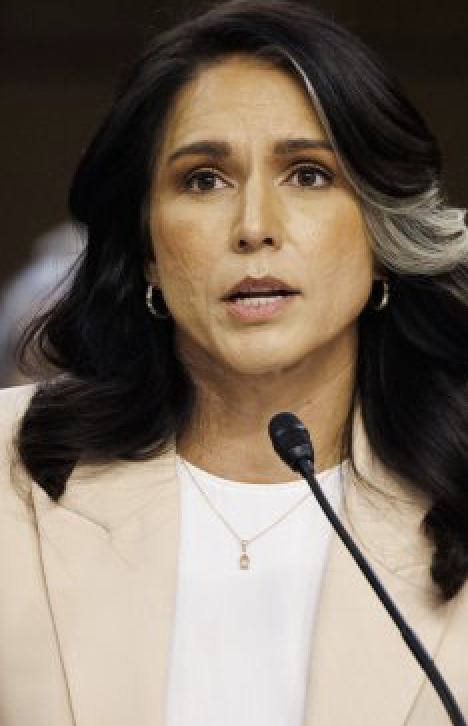April 02 2025
The new chief of US intelligence shocked and surprised many Republicans in Congress when she told them that Iran is not building any nuclear weapons.
Many news reports presented this as a new position by US intelligence. But actually, Tulsi Gabbard, the new Trump-appointed director of national intelligence, was simply saying the same thing that the intelligence world has been saying since 2007.
Gabbard was presenting the annual “threat assessment.” That is not a personal analysis, but rather the concerted conclusion of all 18 American intelligence agencies that comprise the US “intelligence community” (IC). Those include the Central Intelligence Agency, the Defense Intelligence Agency, the National Security Agency and the National Reconnaissance Office.
Gabbard’s report, the unclassified version of which was released March 25, devoted about four pages exclusively to Iran. The only countries to have their own separate sections were Russia, China, Iran and North Korea.
Her major points about Iran were:
- Supreme Leader Ali Khamenehi continues to try to avoid any “direct conflict” with the United States;
- The regime continues to seek to kill US officials involved in the 2020 assassination of Maj. Gen. Qasem Soleymani. Gabbard did not say if that list included President Trump, who was the person who decided to kill Soleymani;
- Iran genuinely seeks better relations with countries such as Saudi Arabia, while remaining suspicious of what Saudi Arabia is up to;
- Iran’s military is poorly-run and weak—even weaker now that its proxies have been beaten up by Israel—but is still capable of damaging anyone that attacks it;
- The economy is in bad shape and won’t get better as long as US sanctions are in place.
Here are extracts from the report:
“Supreme Leader Ali Khamenehi continues to desire to avoid embroiling Iran in an expanded, direct conflict with the United States and its allies….
“Iran also will continue to directly threaten US persons globally and remains committed to its decade-long effort to develop surrogate networks inside the United States. Iran seeks to target former and current US officials it believes were involved in the killing of Islamic Revolutionary Guard Corps (IRGC)-Qods Force Commander Qasem Soleymani in January 2020….
“Iran is also making progress developing closer diplomatic and defense ties to African states and other actors in the Global South and is trying to build on nascent improvements in its ties with other regional actors, such as Saudi Arabia, despite continued mutual suspicion over each other’s ultimate visions for the region….
“The economy is beset by low growth, exchange rate volatility, and high inflation. Absent sanctions relief, these trends probably will continue for the foreseeable future….
“Iran’s conventional and unconventional capabilities will pose a threat to US forces and partners in the region for the foreseeable future, despite the degradation to its proxies and air defenses during the Gaza conflict. Iran’s large conventional forces are capable of inflicting substantial damage to an attacker….
“The IC assesses Iran’s prospects for reconstituting force losses and posing a credible deterrent, particularly to Israeli actions, are dim in the near-term…. The limited damage Iran’s strikes in April and October 2024 inflicted on Israel highlights the shortcomings of Iran’s conventional military options.
“Iran has also deployed small boats and submarines capable of disrupting shipping traffic through the Strait of Hormuz. Its ground and air forces, while among the largest in the region, suffer from outdated equipment and limited training….
“Iran’s growing expertise and willingness to conduct aggressive cyber operations make it a major threat to the security of US networks and data. Guidance from Iranian leaders has incentivized cyber actors to become more aggressive in developing capabilities to conduct cyber attacks….
“Iran very likely aims to continue R&D [research and development] of chemical and biological agents for offensive purposes….
“We continue to assess Iran is not building a nuclear weapon and that Khamenehi has not reauthorized the nuclear weapons program he suspended in 2003, though pressure has probably built on him to do so. In the past year, there has been an erosion of a decades-long taboo on discussing nuclear weapons in public that has emboldened nuclear weapons advocates within Iran’s decision-making apparatus. Khamenehi remains the final decisionmaker over Iran’s nuclear program, to include any decision to develop nuclear weapons.”
























